How to Make Fondant
You can buy it, so why would you need to know how to make rolled fondant? Let’s face it, commercial fondant does not taste good. I’ll show you how to Make your own. It is worth the time and is surprisingly easy to do.
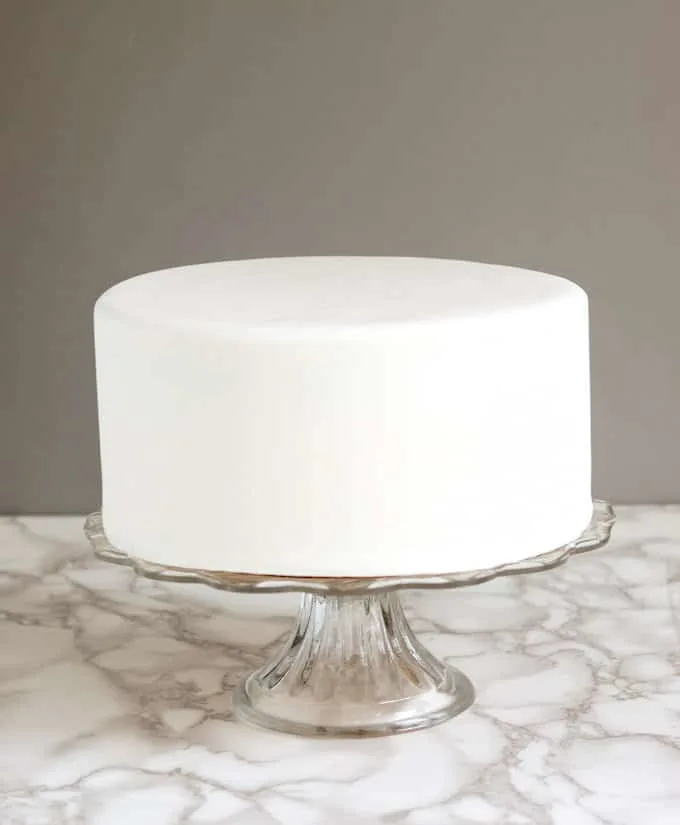
For 10 years I owned a wedding cake business. I can’t count how many times a bride told me she loves the look of fondant, but hates the taste.
Once I had them sample my homemade fondant they were often happy to have their wedding cake with a porcelain fondant finish.
What is Fondant?
Rolled fondant is a sugar dough that can be rolled out to drape over cakes or cut into decorative pieces. Rolled fondant also has gelatin in it, so it is elastic enough to roll thin without breaking apart.
There is another type of Fondant which is pourable and has much more water than rolled fondant. Fondant glaze is used to ice Petit Fours and other pastries.
Fondant Ingredients
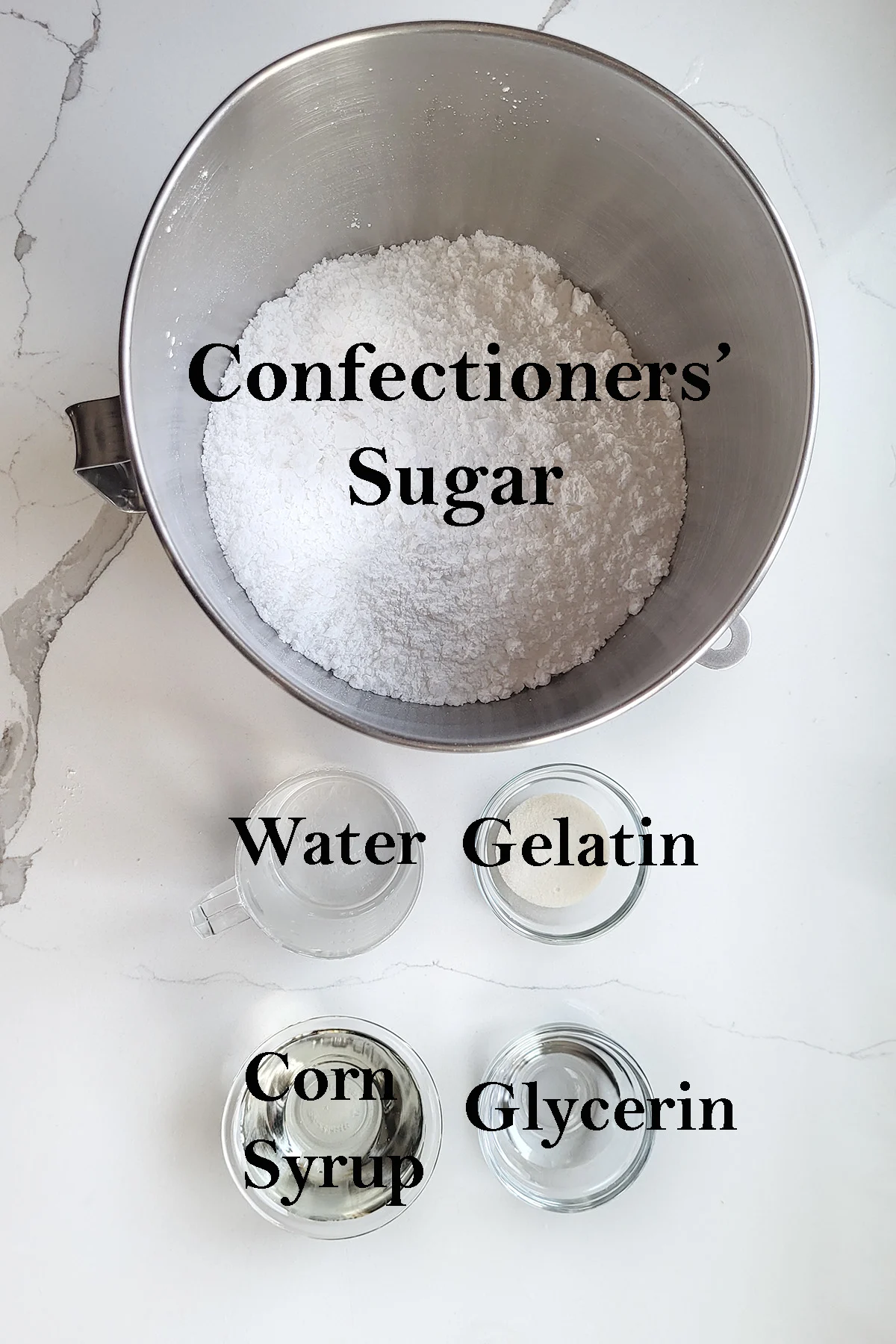
- Confectioners’ Sugar – Forms the base of rolled fondant.
- Water – For blooming the gelatin and forming the dough.
- Gelatin – Makes the fondant elastic so it can be rolled thin without cracking.
- Corn Syrup – Adds moisture and body to the fondant.
- Glycerin – Keep the fondant from drying out to a hard finish.
How to make Fondant
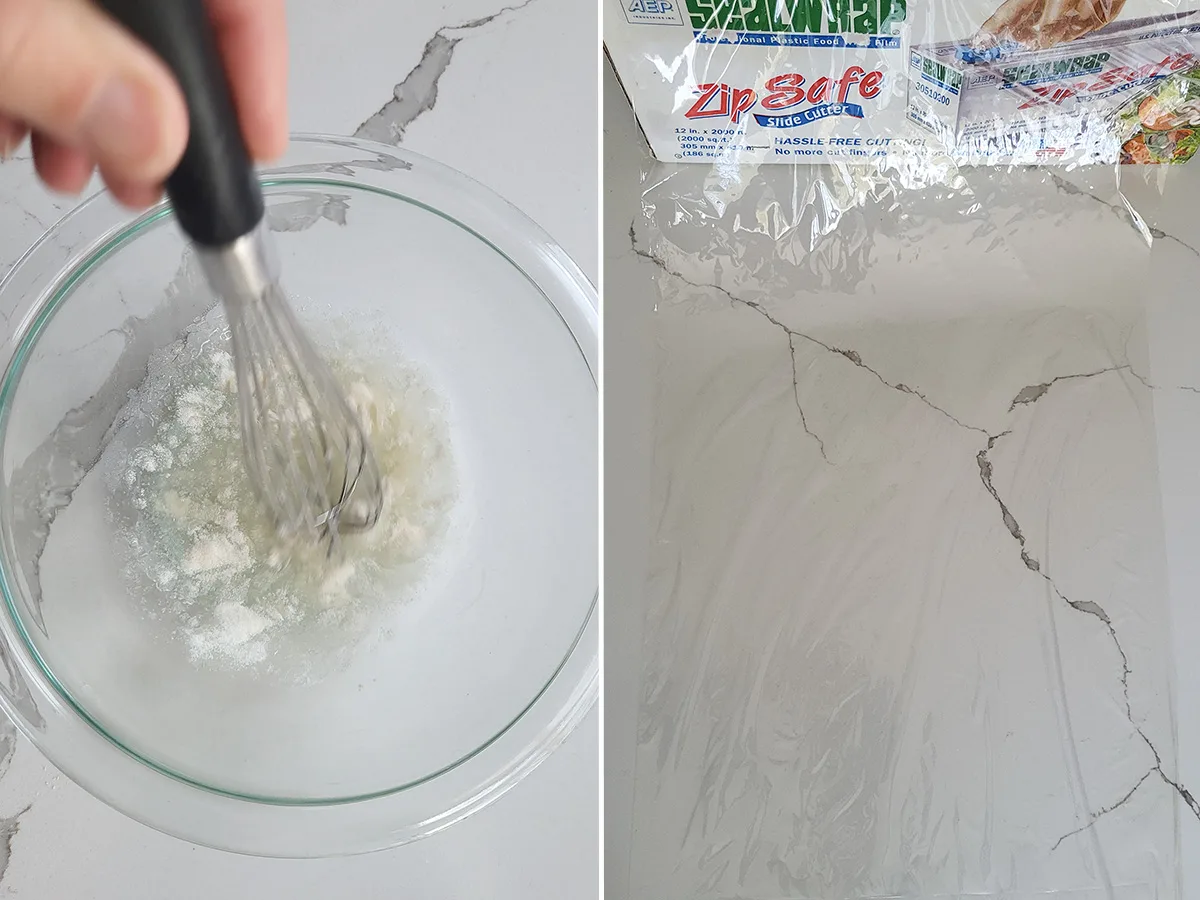
- Whisk the gelatin powder into cool water and set it aside to “bloom”.
- Lay out a sheet of plastic wrap before you being mixing the fondant. Your hands will get very messy.
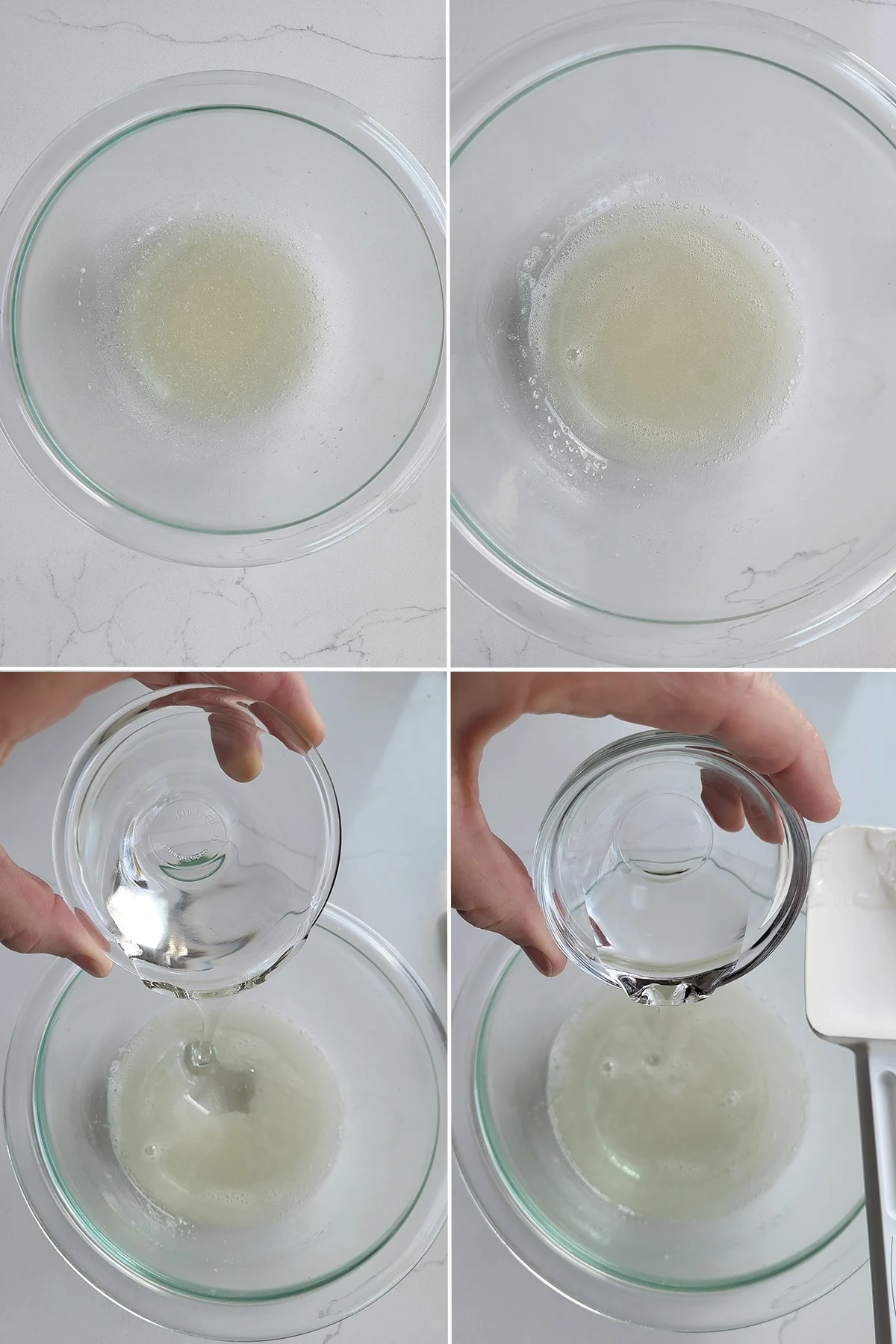
- After 5 minutes the gelatin should be bloomed. All the water will be absorbed.
- Melt the gelatin.
- Add the corn syrup.
- Add the glycerin. Reheat the mixture.
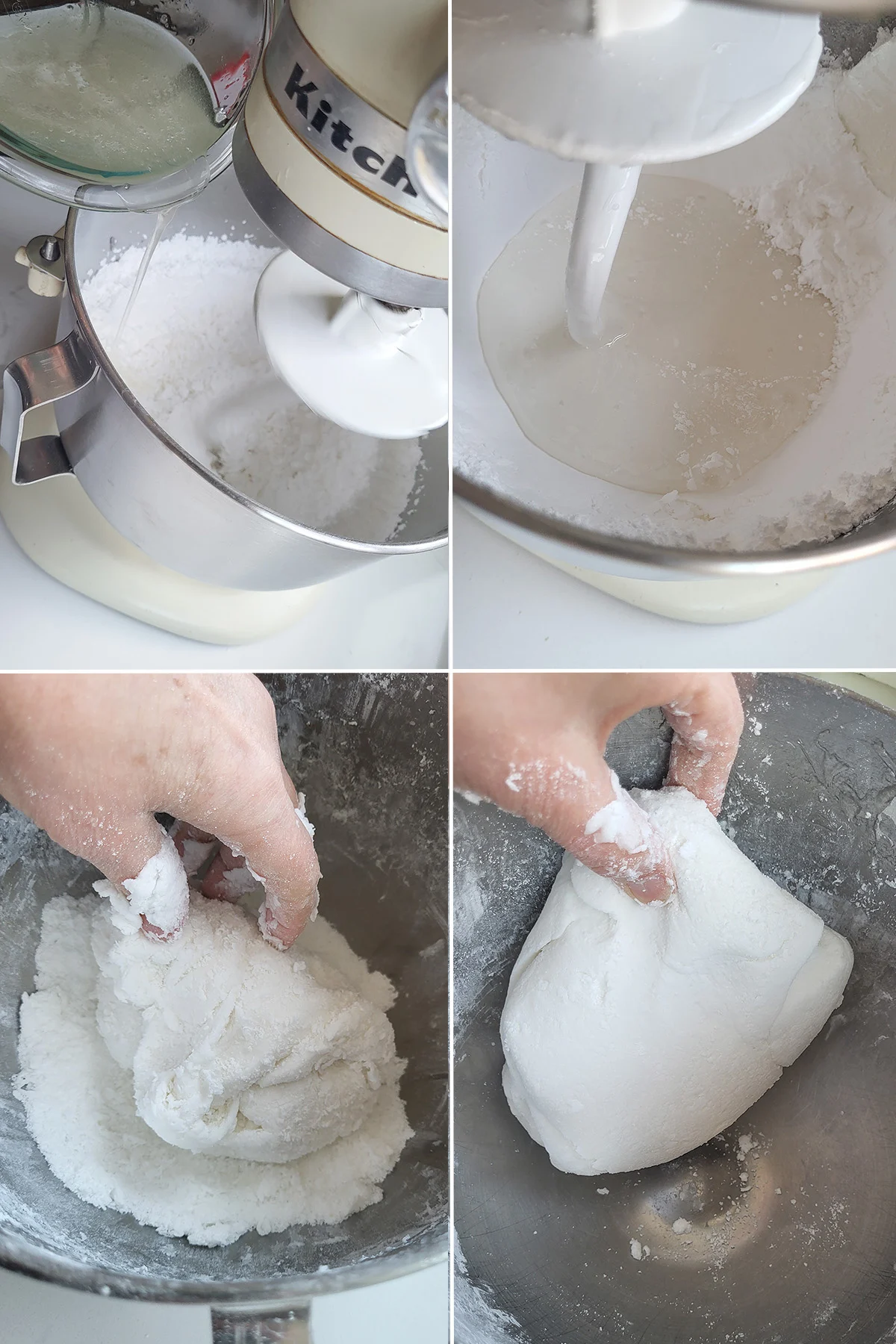
- Add the warm gelatin mixture to the confectioners’ sugar.
- Scrape the sides of the bowl so the sugar mixes into the wet ingredients.
- After most of the sugar is mixed in, finish kneading in the sugar by hand.
- Knead until all the sugar is absorbed. Transfer to a surface lightly dusted with sugar and knead until the fondant is smooth.
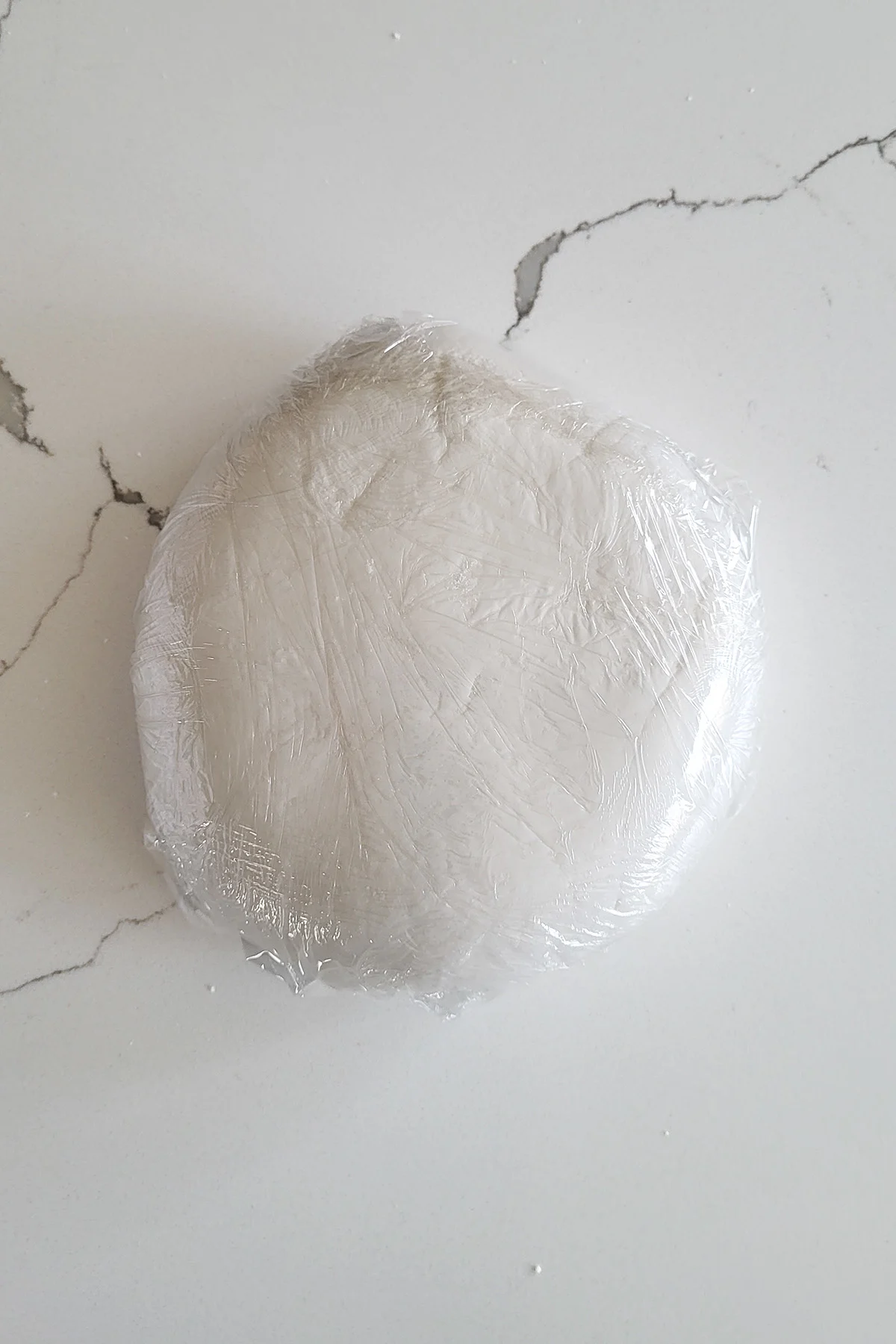
- Wrap the fondant in two layers of plastic and set it aside at room temperature for at least 8 hours. This gives the gelatin time to set.
Pastry Chef Tips for making your own rolled fondant:
- If you want a tinted fondant, add the coloring to the gelatin mixture. It’s easier than kneading in color later.
- Unfortunately, if you want a very dark or vibrant color you’ll just have to buy fondant. For bright red or black, for example, you’d have to add so much coloring that it ruins the texture of the fondant. Believe me, I’ve tried it. That’s the only time I used commercial fondant.
- I find it’s easiest to mostly mix the fondant with the dough hook and then finish kneading in the sugar by hand.
- No matter how you mix it, the freshly made fondant is a sticky mess and is a bit of a pain to knead together. Just keep kneading and appreciate the arm workout.
- The fondant must set overnight and be re-kneaded before rolling.
- This recipe makes a little more than you need to cover an 8″ cake because it’s easier to have a little too much and trim away excess.
- I have included volume measures here for those who don’t have a kitchen scale. But I do recommend that you weigh the ingredients to get the most consistent results. A little variation in the amount of moisture or sugar in the fondant can make a big difference in texture.
Storage
- Wrap fondant in plastic then put it into a plastic storage bag to prevent the surface from drying out.
- Fondant can be stored at room temperature for 1 week.
- Fondant can be refrigerated for up to a month or frozen for up to 3 months.
Rolled Fondant vs Marshmallow Fondant
Rolled fondant is made by adding gelatin, corn syrup and glycerin to powdered sugar. Marshmallow fondant is made by melting commercial marshmallows then adding powdered sugar.
Commercial marshmallows are made with sugar, corn syrup and glycerin. So, as you can see, rolled fondant and marshmallow fondant are essentially the same thing.
Why homemade rolled fondant is better
It’s true, most people don’t like the taste of fondant. But I think most people have only eaten commercially made fondant. Some brands are better than others, but even the best commercial products have a texture and taste that are, sadly, reminiscent of Playdough.
I’ve always made my own fondant. When I started making cakes almost 30 years ago, you couldn’t buy it in the stores and there was no internet, so I had no other choice than to make it.
For my cake business, I made my own fondant since it’s easy enough to make and is much cheaper than buying it. Even better, although it is sweet (it’s mostly sugar, after all) it doesn’t have a weird taste or smell. It just tastes like sugar.
Watch the recipe video to see how to make rolled fondant.
Now that you’ve made your own fondant, watch this video to see How To Cover A Cake with Fondant.
Here are more cake decorating recipes and resources: Vanilla Cake, Italian Meringue Buttercream, American Buttercream, How to Assemble a Layer Cake, How to Ice a Cake like a Pastry Chef.
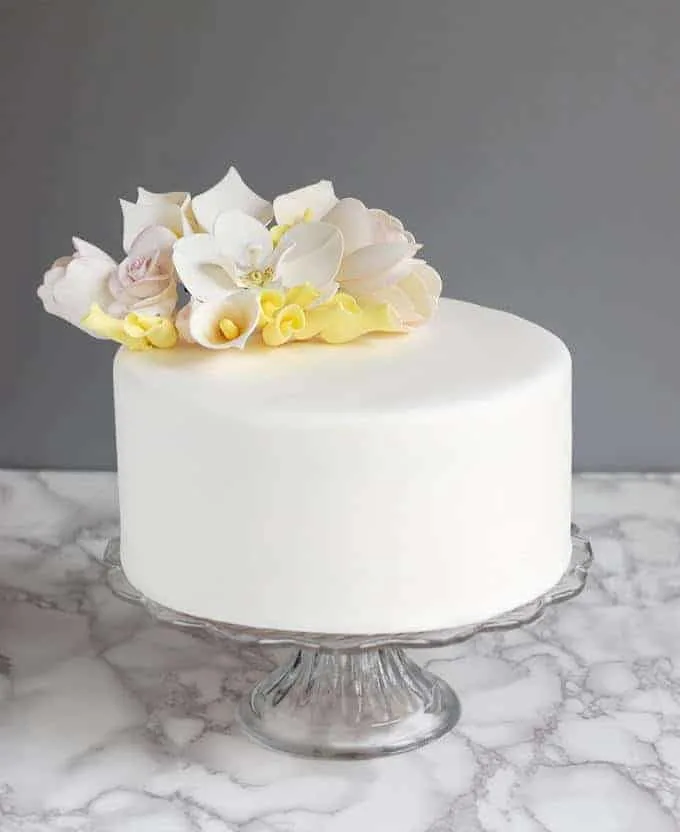
If you love this recipe as much as I do, I’d really appreciate a 5-star review.
Rolled Fondant Recipe
Video
Ingredients
- 24 ounces confectioner sugar (6 cups, see note)
- 2 ounces cool water (¼ cup)
- 2 ½ teaspoons gelatin powder
- 3 ½ ounces white corn syrup (¼ cup plus 2 Tbsp)
- ¾ oz glycerin (1 Tbsp)
Instructions
- Sift 24 ounces confectioner sugar into a large mixing bowl or in a stand mixer bowl with the hook attachment.
- Put 2 ounces cool water in a small microwave-safe bowl. Sprinkle 2 ½ teaspoons gelatin powder evenly over the surface of the water. Whisk 1-2 times to combine. Let the gelatin "bloom" for 5 minutes. Lay out a 12" long piece of plastic wrap.
- Heat the bloomed gelatin in the microwave for 15 seconds to melt. Whisk 3 ½ ounces white corn syrup and ¾ oz glycerin into the warm gelatin (see note if you want to tint the fondant). Heat another 15 seconds in the microwave to make sure everything is melted.
- Pour the warm gelatin mixture into the sugar all at once. If working by hand use a wooden spoon to stir the mixture until most of the sugar is incorporated. If using a stand mixer, use the dough hook on medium-low until most of the sugar is incorporated.
- With the fondant still in the bowl, use your hands to finish kneading the rest of the sugar into the fondant. It will be quite sticky and messy at this point, just keep kneading. A plastic bowl scraper is helpful for handling the fondant.
- Turn the fondant out onto the plastic wrap. Wrap 2x in plastic wrap and let it set at least 8 hours or overnight before using.
- When ready to use, knead the fondant until it’s smooth and supple. Roll on a surface dusted with powdered sugar. When not using always keep the fondant covered so it doesn’t form a skin.
Would you like to save this recipe?
As an Amazon Associate and member of other affiliate programs, I earn from qualifying purchases.

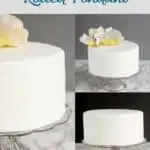
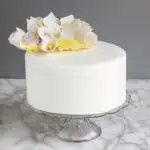



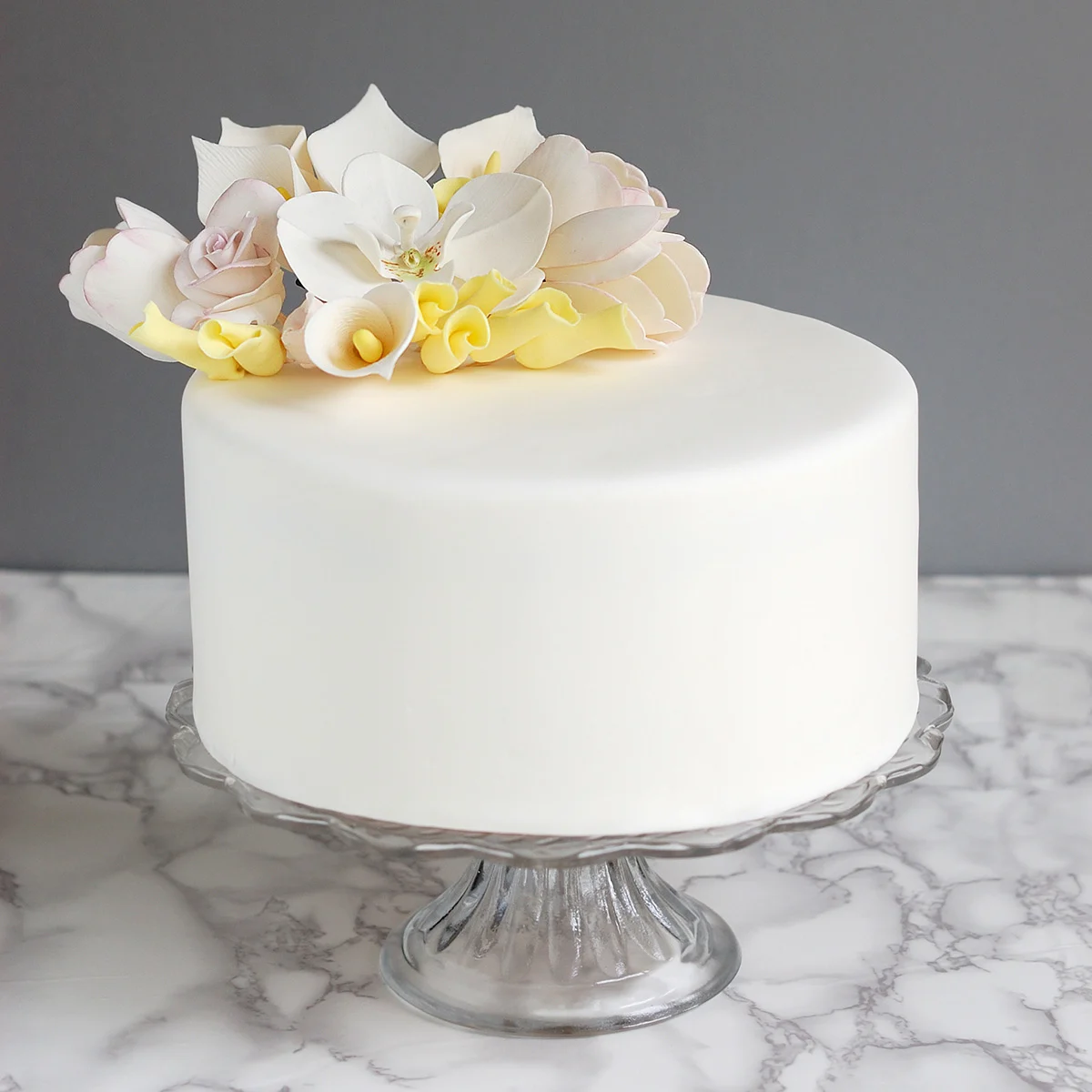
would this still work if its not in the fridge overnight but for about 7 hours instead, and can it sit longer that 8 hours in the fridge
The fondant does not need to be refrigerated. It should be held at room temperature. The resting time is for the water to hydrate the sugar and for the gelatin in the fondant to set. 7 hours should be fine.
Hi, Do we have to add tylose powder to fondant , the recipe I make asks for tylose but it smells & tastes very chemical like . Just wondering if fondant works as well without tylose.
I’ve been making this recipe without tylose for more than 20 years. So, no, you don’t need tylose powder for fondant. I do add gum tragacanth (tylose is a brand name) if I want to make sugar flowers. The gum makes fondant stretchy so you can roll it super thin to make flower petals. But for covering a cake or basic decorations you don’t need to add the gum.
Please someone taught me to use icing sugar, glycerin and egg white for the fondant. Is it good?
I couldn’t say if it’s good without seeing the recipe. Have you made it? Do you like it? If you like it, it’s good.
Can you freeze fondant..?
I don’t freeze fondant because it keeps so well at room temperature. You can hold it for a number of days, even a couple of weeks. Wrap it in two layers of plastic wrap so it doesn’t dry out. If you want to hold it for a really long time, like a few months, you could put it in the freezer. I would double wrap it and then put that into a freezer bag to be sure it doesn’t pick up off flavors or moisture from the freezer.
I have two types of gelatin one is in sheets and the other is powdered with a very high bloom factor. What quantity would you suggest using either.
I create all my recipes using powdered gelatin. For my recipes use powdered gelatin.